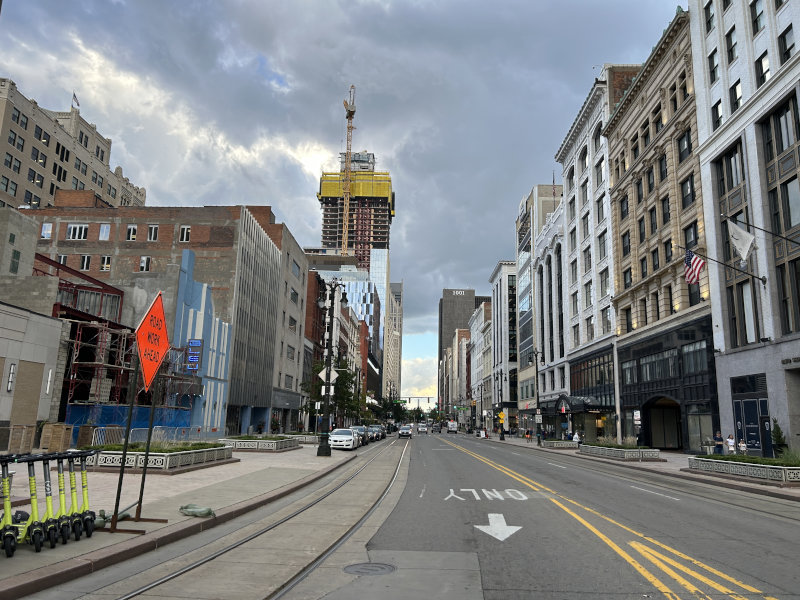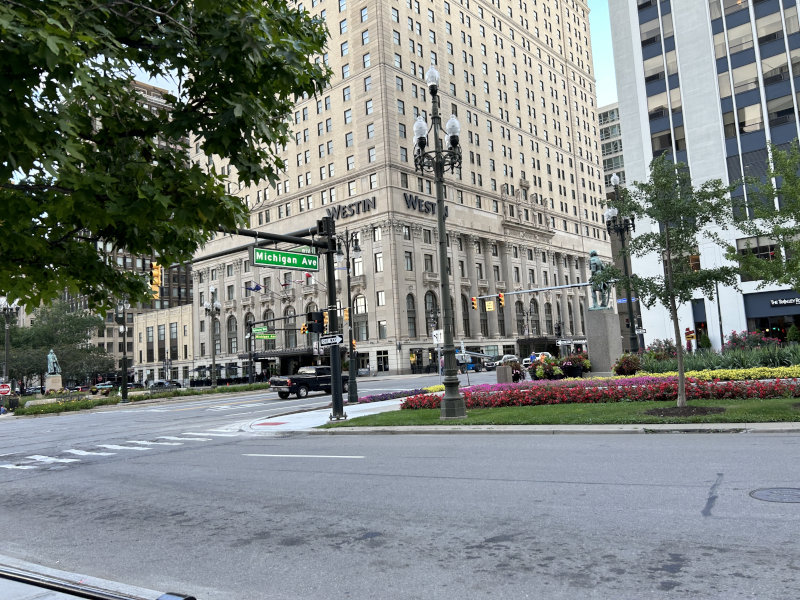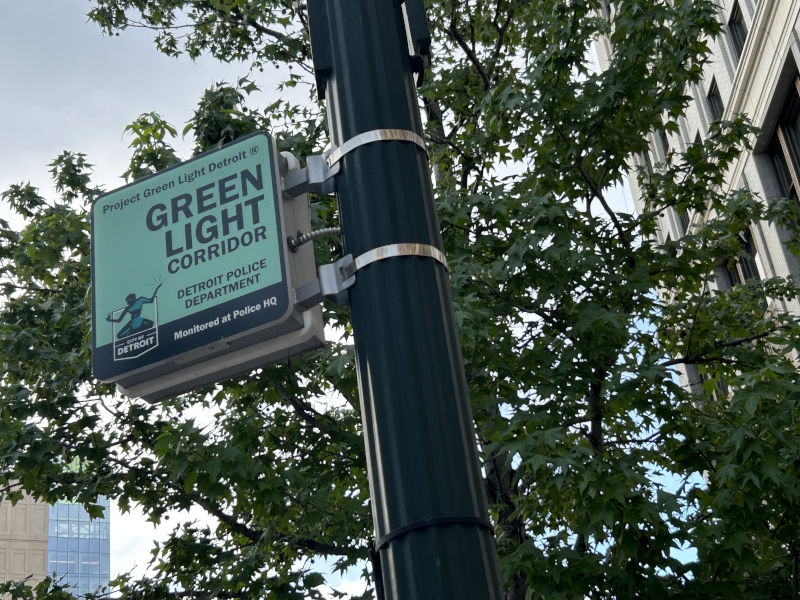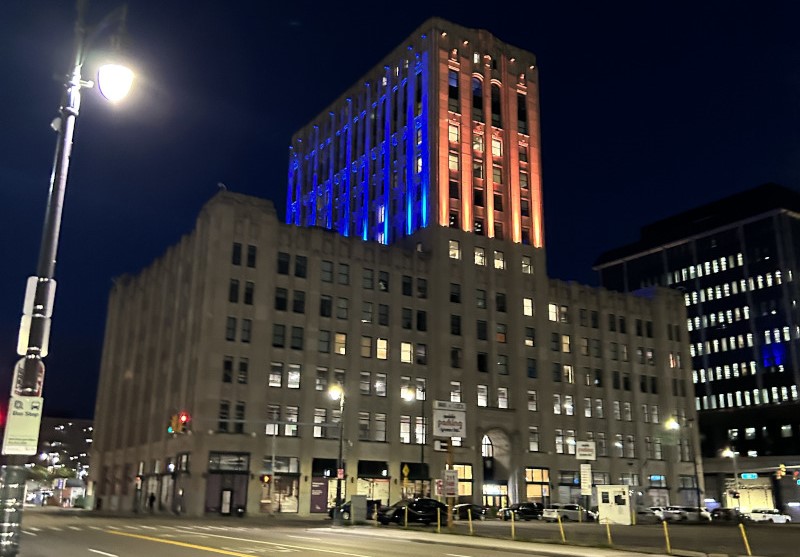Walking the streets of Detroit was a strange experience. Here I was in the great automotive city which is beautiful by the way and yet it felt…empty. I knew that the city had been losing residents since the turn of the century but it was another thing seeing it in person.
Coming from Harare it is no wonder the city felt empty. Detroit has less than 650,000 people whilst Harare packs around 2 million people with more streaming in by the day.
Looking it up reveals that Detroit has lost over 60% of its residents since 1950. It has been losing people every decade since and the population shrunk by 25% from 2000-2010. The rate of loss decreased from 2010-2020 but the city still lost 10.5% of its residents that decade.


Why? There are various factors including high crime rates, high taxes (especially property taxes) and the high cost of doing business.
It’s also interesting to note that ‘suburbanisation’ is touted as one of the reasons for the exodus. This is just the phenomenon where many people move from cities to suburbs for various reasons.
We passed through some Detroit suburbs and they are beautiful and green. I immediately understood why people were leaving the city for them.
This gave me pause when I looked at Harare and its own suburbanisation problem if you can call it that. You will have noted that many businesses are choosing to locate outside the central business district.
Could this be a sign of trouble to come? I don’t know because to me it feels like Harare and its suburbs have always felt like one unit. You can educate me on this in the comments section.
Anyway, the major reason why Detroit is losing people is the decline of the auto industry. Detroit was the home of the three major automakers in the country – GM, Ford and Chrysler. As the auto industry struggled and downsized, many lost their jobs.
Those who lost jobs contribute less in taxes and many of them have been relocating, looking for greener pastures elsewhere.
The automakers themselves are contributing less in taxes and this has led to declines in service delivery in the city. The city had to increase taxes in other areas to make up for the declining tax revenues and this has only made the city worse as an investment destination.
So, in short, here is the situation Detroit finds itself in –
- Main businesses are struggling and paying less in taxes
- Major employers are downsizing and laying off workers
- Residents are earning and paying less in taxes
- Many residents are leaving the city
- Taxes have been raised to cope, which has discouraged new businesses from setting up shop
- Businesses that serve auto industry workers, such as restaurants, are also struggling, earning less, paying less in taxes, and downsizing themselves
Dependence on a sector/company
I grew up in a small town in Chakari that was built around a single gold mining company, Falcon Gold. The town was mostly surrounded by farms, but the main reason the community existed was because of the mining company.
As mines are mined, their ore deposits are depleted, making them less profitable to operate. This is what happened to Falcon Gold in Chakari. It became too expensive to continue mining there, so the company left. The mine remained idle for years until it was purchased by Rio Zim, but it never regained its former glory.
It is depressing to visit Chakari now. Most houses do not have electricity because they are connected to the national grid through the mine, which is no longer in operation. ZESA needs to undertake a major electrification project to restore power to the town, but this is unlikely to happen anytime soon.
The mine also served as the community’s water authority, so when it shut down, people had to dig their own wells and fortunately, some community boreholes were installed.
Most people were employed by the mine and so they lost their jobs. Many of them are now artisanal miners (makorokoza) and are struggling mightily.
Those who can are leaving for neighbouring Kadoma and Chegutu. Many families in the area are 2nd or 3rd generation immigrants and so do not have any rural area to flee to and so are stuck there.
That’s what dependence on one company/sector/trick can lead to. One could argue that Zimbabwe was too dependent on agriculture such that when that sector was ravaged, the country was mired in challenges.
We see the likes of the UAE desperately trying to diversify. They have somewhat succeeded in reducing their dependence on oil and have become a tourist destination. That should help in the event that oil is no longer as valuable as it is today.
Saudi Arabia is paying its way to being a top sports centre. They have invested billions to bring motorsports, football, golf and other sports to the country. They too want to reduce their dependence on oil.
So, one commends the plan to make Victoria Falls a financial services hub. It can’t rely on just tourism alone, it has to diversify.
Back to Detroit
We discussed the crime problem in Detroit, and one of the most innovative approaches to solving this problem is Project Green Light.
It provides real-time surveillance camera connections between the Detroit Police Department (DPD) and participating businesses.
Businesses that participate in Project Green Light install HD surveillance cameras, lighting, and signage that identifies their location as a participant in the initiative. The DPD monitors the cameras 24/7 and can respond quickly to crimes that are in progress or that have recently occurred.

I couldn’t help but wave at the police when I passed this sign.
You could talk about the privacy concerns that this raises but you can’t argue with the results. The program has reduced property crime at participating businesses by about 27%. However, Project Green Light doesn’t seem to be having any effect on violent crime or disorder occurrences.
This is interesting because Zimbabwe intends to use mass surveillance at Zim Cyber City. Partner on the project, Mulk International, is quoted saying it will install “surveillance technology that is directly connected to law enforcement authorities.” Sounds a lot like Project Green Light.
If Detroit is anything to go by, the surveillance will have some effect on reducing crime but is that enough to put up with the risk that this kind of surveillance will be abused? You decide.
The Zim Cyber City may end up being a pipe dream so let’s not lose too much of our sleep over it.
Also read:
The ecosytem that allows Boston biotech startups to thrive has lessons for Zimbabwe
Potraz and the UN’s ITU hosting a co-creation workshop to assess how Zim can promote innovation

What’s your take?